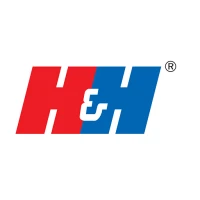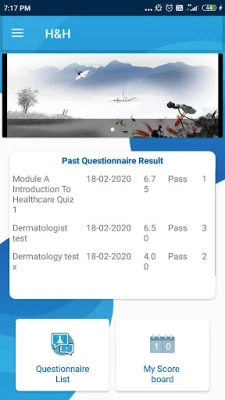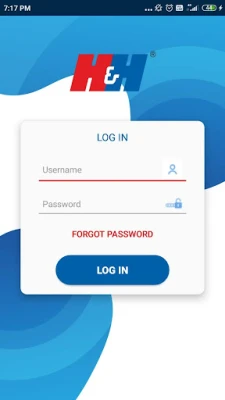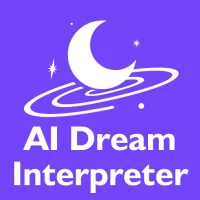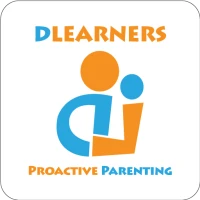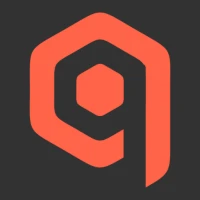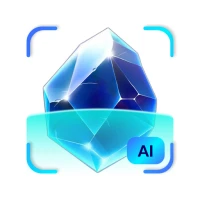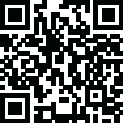
Latest Version
1.20
August 10, 2025
HEMANTH HEGDE
Education
Android
0
Free
com.hh.pharma
Report a Problem
More About EMPOWER
Enhancing Product Knowledge: The Importance of Periodic Questionnaires in the Pharma Industry
In the fast-paced world of pharmaceuticals, continuous learning is not just beneficial; it is essential. As the industry evolves, so too must the knowledge of those who work within it. One effective method to ensure that teams remain informed and competent is through the implementation of periodic questionnaires focused on product knowledge. This article explores the significance of these questionnaires and how they contribute to ongoing education in the pharmaceutical sector.
The Need for Continuous Learning in Pharma
The pharmaceutical industry is characterized by rapid advancements in technology, research, and regulations. As new drugs and therapies emerge, professionals must stay updated to provide the best possible care and information to patients and healthcare providers. Continuous learning fosters a culture of knowledge and adaptability, enabling teams to respond effectively to changes in the market.
What Are Periodic Questionnaires?
Periodic questionnaires are structured assessments designed to evaluate and enhance the knowledge of team members regarding specific products, industry trends, and regulatory requirements. These questionnaires can take various forms, including multiple-choice questions, true/false statements, and open-ended queries. By regularly administering these assessments, organizations can identify knowledge gaps and areas for improvement.
Benefits of Implementing Periodic Questionnaires
1. Reinforcement of Knowledge
Regularly testing employees on their product knowledge reinforces what they have learned. This repetition helps solidify information in their minds, making it easier to recall when needed. By engaging with the material frequently, team members are more likely to retain critical information about products and their applications.
2. Identification of Knowledge Gaps
Periodic questionnaires serve as a diagnostic tool to pinpoint areas where team members may lack understanding. By analyzing the results, management can tailor training programs to address these gaps, ensuring that all employees possess a comprehensive understanding of the products they represent.
3. Encouragement of Team Collaboration
When teams participate in periodic assessments together, it fosters a sense of collaboration and shared responsibility for learning. Employees can discuss their answers, share insights, and learn from one another, creating a more cohesive and knowledgeable team.
4. Keeping Up with Industry Changes
The pharmaceutical landscape is constantly changing, with new research findings, product launches, and regulatory updates. Periodic questionnaires can be designed to reflect these changes, ensuring that team members are always informed about the latest developments in the industry.
Best Practices for Designing Effective Questionnaires
1. Align Questions with Learning Objectives
To maximize the effectiveness of periodic questionnaires, it is crucial to align questions with specific learning objectives. This ensures that the assessment is relevant and focused on the most critical areas of knowledge.
2. Incorporate a Variety of Question Types
Using a mix of question types can keep the assessment engaging and challenging. Incorporate multiple-choice questions, case studies, and scenario-based questions to test different levels of understanding and application.
3. Provide Immediate Feedback
Offering immediate feedback after completing the questionnaire can enhance the learning experience. This allows team members to understand their mistakes and learn from them right away, reinforcing their knowledge.
4. Schedule Regular Assessments
Establishing a regular schedule for administering questionnaires helps create a routine of continuous learning. Whether it’s monthly, quarterly, or bi-annually, consistency is key to maintaining a knowledgeable workforce.
Conclusion: A Commitment to Knowledge in the Pharma Industry
In conclusion, periodic questionnaires are a vital tool for fostering continuous learning and knowledge enhancement within the pharmaceutical industry. By implementing these assessments, organizations can ensure that their teams remain informed, competent, and ready to meet the challenges of an ever-evolving landscape. Embracing a culture of continuous education not only benefits employees but ultimately leads to better patient outcomes and a more successful organization.
Rate the App
User Reviews
Popular Apps










Editor's Choice










